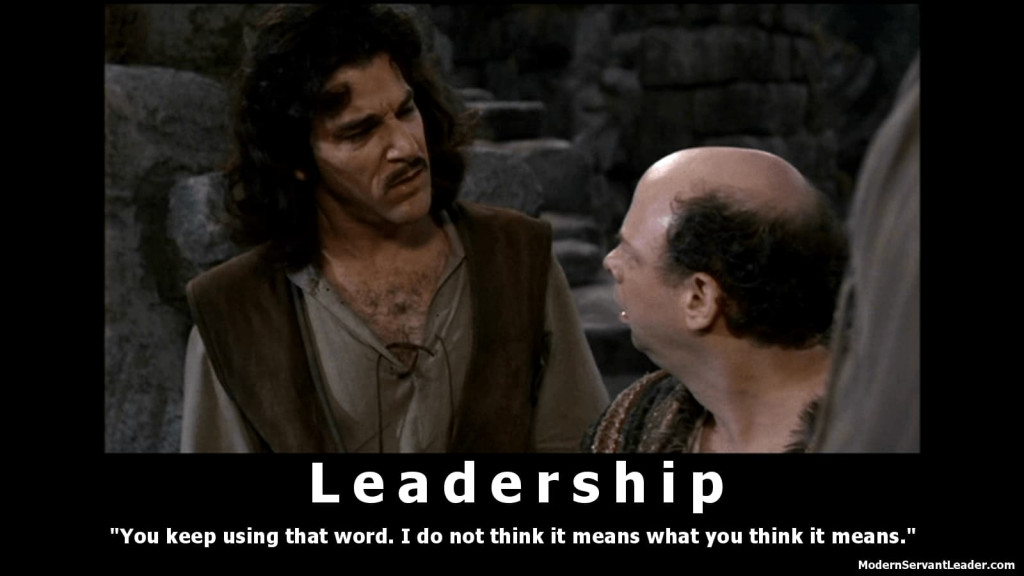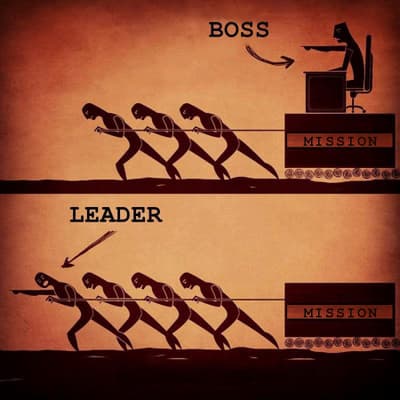Being a Manager Is Simple, But It’s Not Easy

Ah, the fabled manager. Commonly known as boss, chief, director, higher-up, overseer, brass, head honcho, truly a gift from heaven (OK, this is rare), or “that mischievous monkey who understands nothing, and does even less” (OK, this can be heard more often). Plenty of stereotypes and misconceptions surround this position. One of them is that this job is super complicated, especially when you want to become a Leader (with a capital L). It’s like a difference between beat and beet. Ask a DJ to help you here if you don’t get it. And while we tend to believe in such stories, good leadership is actually a very simple thing. Even though it’s not easy.
The Mandalorian Code of Honor consists of four simple tenets: Strength, Loyalty, Honor and Death. These make the clan-based, warlike culture so uncanny, yet respected across the Star Wars galaxy. The same set should apply to being a manager. You’ll find plenty of books on that topic for sure, but their contents can be distilled to such simple rules. Let me tell you more about them. This is the Way.
Getting your team to respect your leadership isn’t rocket science
Your demands must be reasonable and your judgements fair. You must work as hard as you expect your employees to work. You need to give them your time and help them develop. You have to trust them. And that about sums it up. Do just that and you can rest assured that your squad will respect you and do their jobs well.
The thing is this is a process. And it demands much from the leader as a person.

Let’s consider your judgements, for example. Are they fair? If you’re honest with yourself, you’ll probably have a very hard time saying “yes.” It’s impossible to be fully impartial. Everyone is entitled to their opinion and who they like or not. And we subconsciously favor those who share their interests, ideas and working styles with us.
If you want to treat everyone fair, you need to filter out your preferences, as they make you biased. As a leader, you literally have to stop being you.
Let’s say there’s a good guy named Greg on your team. He does his job well, but he’s quiet, he barely talks to anybody else and doesn’t really socialize. Getting a beer or two with his colleagues? No way, Jose! He even leaves the office at 4PM sharp, since his kids aren’t going to pick themselves up from the kindergarten. Now, take a look at the rest of the team: you all talk, joke around, seem to be building strong bonds, heck, even overtime’s no problem when you have such cool people around! Does that mean Greg does less? He may as well be working 8 long hours. Yeah, doing just that, no Instagram or Facebook. More a machine than man.
Here’s the kicker: you need to focus on Greg’s achievements alone. His work style’s definitely not “worse” than yours or anybody else’s just because it’s different. Keep that in mind and fight your bias.
OK, that was easy. But there’s something worse than underappreciating people who are different from us. What is an employee actually shares hobbies with us? Cheers the same football team? What if your kids go to the same class? Endless what-ifs. Our sympathy towards the teammate who’s so much like us can once again cloud our judgement and make us over-appreciate certain people.
Worse, the rest of the team sees everything. And they’ll judge you mercilessly.
You’re not as impartial as you think you are
Be on the lookout for bias traps. Hard data is your most honest and trusted friend, feelings are not. So, if Greg has a lot better results than any other team member, he is objectively a better employee, even though his work style does not make him as likeable as the rest of the team.

Up next: the amount of time you devote to your team. No, it’s not about you doing what is their job. It’s not about sharing your life’s details with them. Your job is to be an actual manager. Support your colleagues, talk to them, consult things, discuss important details, give insight. Don’t just say pathetic things like “it’s your job, not mine” or “you’re the expert here!” The manager has to be an actual part of the team, otherwise everything is going to fall apart.
No, this does not mean squandering your precious time and resources on helping people instead of doing your job. This is actually your job.
Trust issues
Perhaps you often find yourself thinking that if you just had enough time, you’d do everything better than anyone else. Right? I doubt that. The bigger the company, the smaller the chance of that happening. But let’s assume that you can do all that and you really are the best specialist around. Now, your brought this on yourself.
If you want your co-workers to move forward, you need to allow them to make mistakes. Teams are like newborns — they are helpless at the beginning and unable to do anything right the first time. They need practice. They need you to let them walk and let them fall. Otherwise, they’re not going to learn anything, babies and your team members alike.
Fairness and honesty
Alright, we know the drill — sometimes it’s very tempting to hide or manipulate a certain fact, just to make sure we reached our targets. But it’s not going to work for your team. See, people in general have this instinct that tells them something’s wrong, that someone’s not being honest with them. They might not see the trick, but they’ll surely know there was one. When you see an illusionist’s performance, what you admire is not magic, but their wits and prowess in fooling people.

So, will your most talented co-worker want to stay in a dishonest environment? Doubtful. No one expects a manager to spit out everything he knows. But everything they say must be true and they must play fair. What one gives one receives.
All this looks simple, doesn’t it? It seems expensive too, and time-consuming as well. But mastering the art of managership is worth it, trust me. This is the way to build a well-organized team that trusts their manager, who happens to be yourself! This is the way to brave the most difficult challenges.
So, don’t make matters worse when you can easily make everything better.
by Marcin Nowak, Head of People Team at G2A.COM